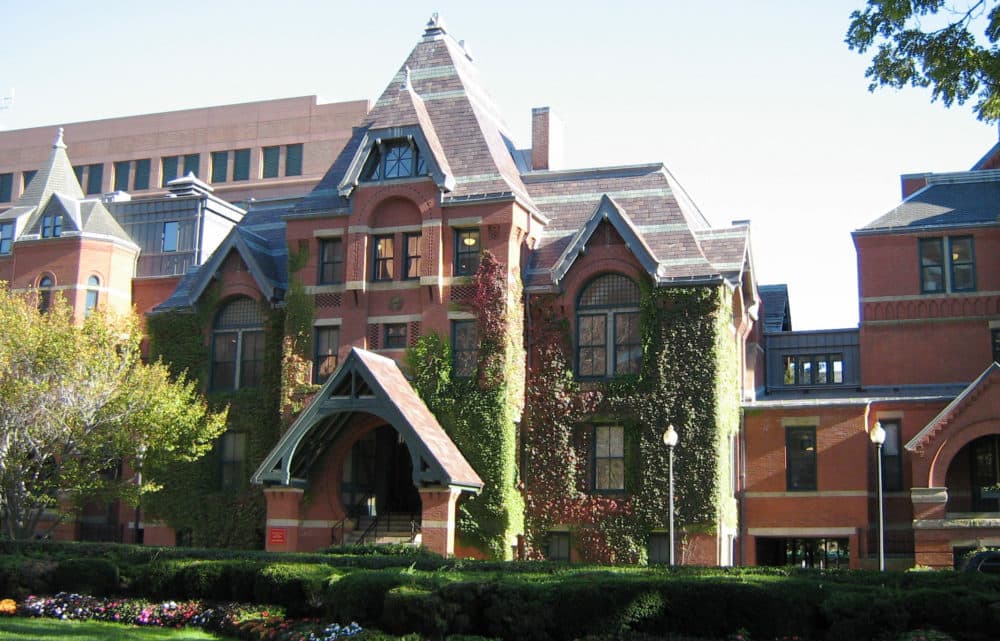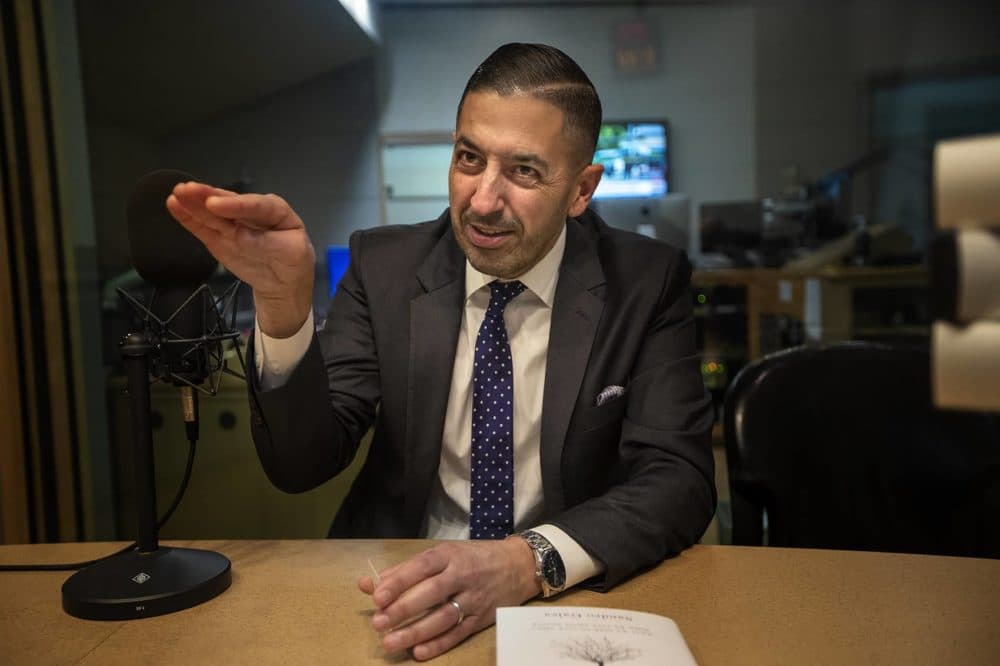Advertisement
Veteran Public Health Professor Sounds Alarm As BU Starts In-Person Classes

A professor at the Boston University School of Public Health has lambasted the university’s plan to offer in-person classes on his campus.
Professor Michael Siegel called the plan “discriminatory,” “racist,” and “motivated by money” in a letter shared with the BUSPH community and posted online Monday — just two days before the fall semester was set to begin.
“In the decisions we were making, we were doing things differently than we’d teach our students,” Siegel said.
Siegel has taught at BUSPH for 25 years, and developed a reputation as a leading expert on public health concerns from tobacco to firearms. But he said this public stand “took about as much as I can muster of my courage.”
In the end, Siegel felt compelled to speak out because of what he considered a glaring contradiction between the school's stated mission — to train practical-minded public-health experts who will protect the vulnerable — and its own planning.
BU’s president, Robert Brown, announced the university’s fall plan, called "Learn from Anywhere," in late April. Under the plan, BU would offer in-person teaching to students who chose it, while others could opt to learn entirely online.
School of Public Health Dean Sandro Galea declined requests for comment through a university spokesperson. But Galea published his own letter to students and staff on Tuesday.
In the letter, Galea wrote that "Boston University is doing the right thing in re-opening its campus, and it is the right thing by us, as a school of public health, to be welcoming our community back, carefully [and] thoughtfully."

Among six arguments for his position, Galea — trained as an epidemiologist — lists the state's overall positivity rate (at a record low since the pandemic began) and BU's "state-of-the-science" protocols for testing.
In an interview with WBUR Tuesday, Siegel made clear that his letter only addresses BUSPH, the corner of the university he knows best. There, he suggested, there are only financial arguments for in-person learning.
“Clearly, [it] doesn’t have health benefits,” Siegel said, since even the cautious re-opening of lecture halls or seminar model creates opportunities for COVID-19 transmission that otherwise would not occur. And he argued that the educational advantages will be negligible at best.
“You have people sitting in a classroom with masks on, a teacher teaching with a mask on, fixed seats six feet apart, everybody anxious about exposure,” Siegel said. “There’s no question that [that’s] not the ideal way of imparting learning.”
When last asked, BUSPH students weren't dissuaded. Galea pointed to a July survey of BUSPH's 1,100 students — with nearly two-thirds responding. "Approximately 70% of respondents indicated a preference for on-campus learning," he wrote.
Online-only learning, Galea continued, has disparate impacts of its own, particularly for low-income students: "By opening our school, we allow students who might not have a home environment conducive to learning to have access to space to fully engage with their education."
At time of publication, seven members of the BUSPH faculty confirmed to WBUR that they agreed with Siegel's argument that the school's commitment to reopening ran counter to its mission. All seven declined to use their names, fearing it would put their jobs or other opportunities at risk. (BUSPH does not have a tenure system for faculty.)
“In the decisions we were making, we were doing things differently than we’d teach our students,” Siegel said.
Michael Siegel, Boston University public health professor
And BUSPH students are not a monolith. Siegel has shared an anonymous letter from a supportive student on his blog.
Another student said while she "absolutely" sympathizes with students craving a prompt return to the classroom, Caredwen Foley — who is seeking her master's degree at BUSPH — considers it premature. She has elected to study from her home in Brighton this semester.
"This is the reason public health is invested in institutional solutions to problems" like the pandemic, Foley said. "We build in structures that keep people from having to make all the risk management and risk mitigation themselves."
Foley applauded BU's commitment to rapid, in-house testing for COVID-19, as well as the swift responses from I.T. staff and faculty so far.
As a graduate student, Foley can't totally avoid campus; she'll serve as a teaching assistant in one BUSPH course this fall. "I had to think about that for a while. That introduces a set of exposures, a set of potential risks" that affect not just her, but her husband, friends and the community at large.
But she also said the Learn from Anywhere plan lacks clarity about what would prompt a return to online-only education — and failed to solicit nuanced community input. "I'm very fortunate — I don’t depend on the institution for my livelihood," Foley said. "I really wish my fellow students, employees, and faculty felt equally empowered."
When it was introduced, Learn from Anywhere was presented as an opportunity for student choice.
But Siegel notes that many affected parties don't enjoy the same freedom — a violation of public-health practice. Teaching assistants and faculty, as well as custodial and food-service staff, will have to enter classrooms, he noted.
Then there's the world outside. BUSPH’s campus is blocks from Nubian Square and Roxbury — alarming, Siegel said, because “we know that, with COVID-19, people of color are at disproportionate risk for both infection and death.”
Siegel argued that the plan doesn't serve his school's most vulnerable students: for example, those with elder relatives at home, long commutes on public transit, or preexisting medical conditions.
“If they have asthma, diabetes, sickle-cell anemia, they can’t come into the classroom,” Siegel said, noting that those problems, too, tend disproportionately to affect Black and Latino communities. “It’s too much risk.”
Siegel acknowledged that many students have reported a preference for in-person learning where possible — including in his own classes. (Due to a medical condition, BU has granted Siegel a 'workplace adjustment' that will allow him to teach from home this fall.)
Still, he made the case for a reversion to all-online learning as soon as possible. "It would be a great lesson for their very first day of class," Siegel said. "People need to understand that public health comes first. If [the school] stands for anything, it's that."
Meanwhile, he added, the BUSPH faculty and students committed to keeping campus as empty as possible this fall are discussing what options they have left.
